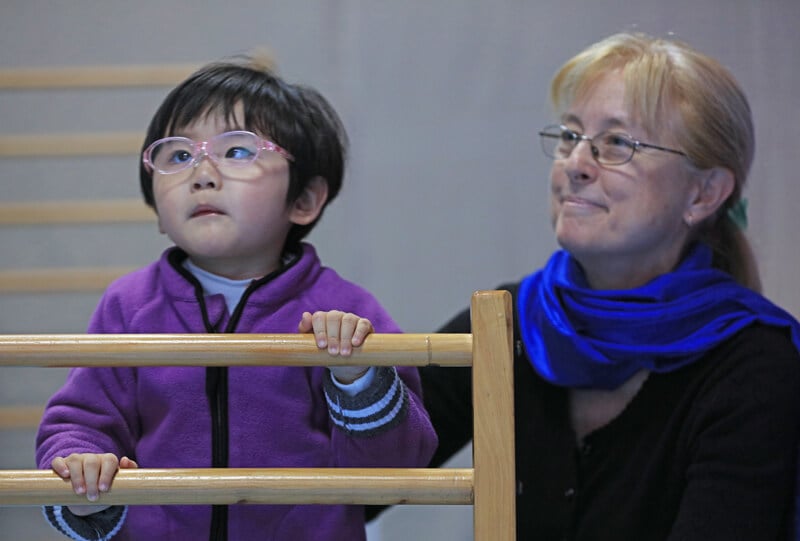Search
Research
Measurement of Sedentary Behaviors or "downtime" in Rett SyndromeThis study aimed to validate measures of sedentary time in individuals with Rett syndrome.
Research
A qualitative investigation of recovery after femoral fracture in Rett syndromeThis study used qualitative methods to investigate the regaining of mobility in 12 months following fractures in Rett syndrome and parent caregiver experiences.
Research
Prevalence and onset of comorbidities in the CDKL5 disorder differ from Rett syndromeThere were differences in the presentation of clinical features occurring in the CDKL5 disorder and in Rett syndrome.
Research
Surgical fusion of early onset severe scoliosis increases survival in Rett syndrome: A cohort studyWe investigated the impact of spinal fusion on survival and risk of severe lower respiratory tract infection in Rett syndrome.

News & Events
Research enriching the lives of girls with Rett syndromeA program developed by The Kids Research Institute Australia researcher Dr Jenny Downs has led to dramatic improvements in the functioning of Chinese children with Rett syndrome, and could change the world.
News & Events
New insight into Rett syndrome severityA research collaboration between Australia and Israel has identified a genetic variation that influences the severity of symptoms in Rett syndrome.
News & Events
New guidelines a model for better management of rare conditionsNew guidelines a model for better management of rare conditions
News & Events
Rett syndrome research reveals high fracture riskGirls and young women with Rett syndrome are nearly four times more likely to suffer a fracture.
News & Events
New study reveals Rett syndrome can strike malesA new study has found that the genetic flaw responsible for Rett syndrome can strike males, even where there isn't a family history of the rare brain disorder.
Research
The Rett Syndrome Gross Motor Scale–Dutch Version (RSGMS-NL) Can Reliably Assess Gross Motor Skills in Dutch Individuals with Rett SyndromeThe Rett Syndrome Gross Motor Scale (RSGMS) is an observational measurement, assessing gross motor skills in individuals with Rett syndrome. A Dutch version is lacking. The current study aims to translate and cross-culturally adapt the original RSMGS to Dutch and assess its inter-rater and intra-rater reliability.
